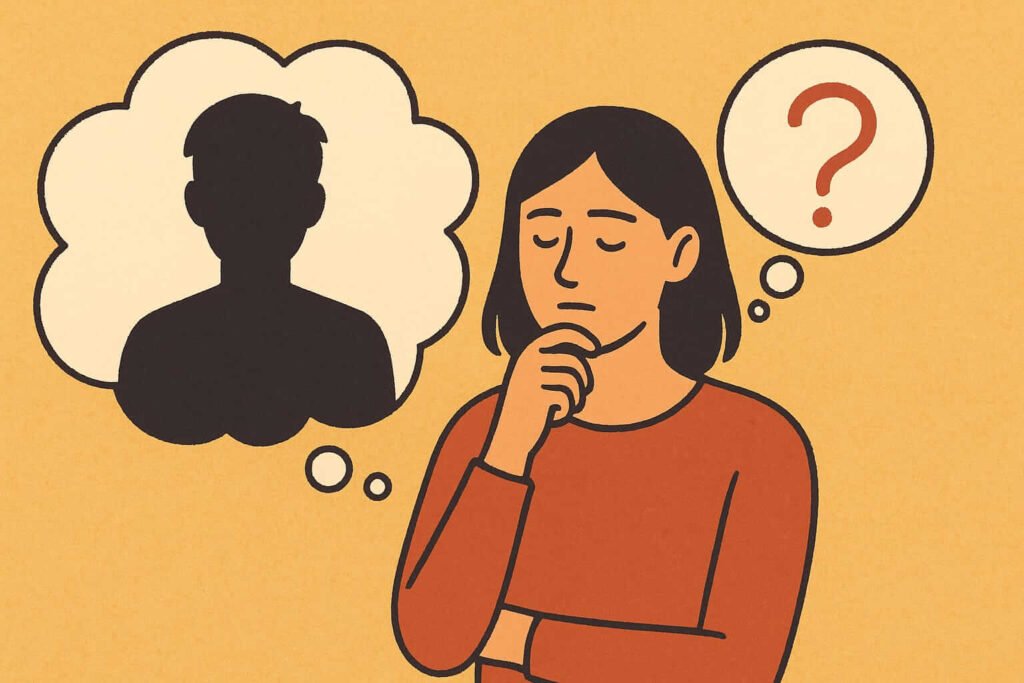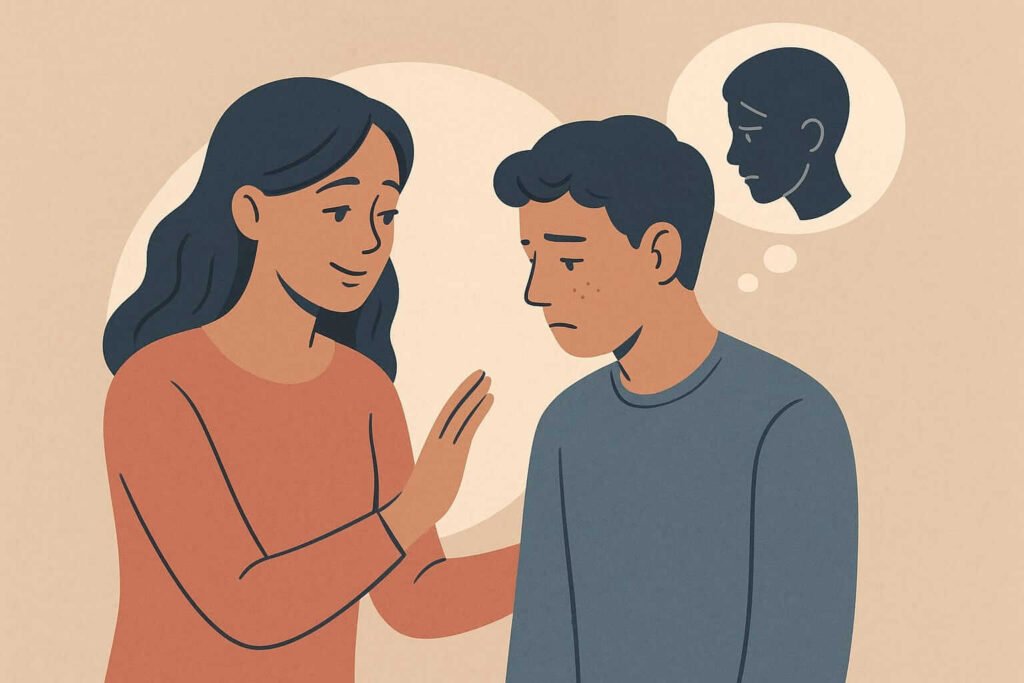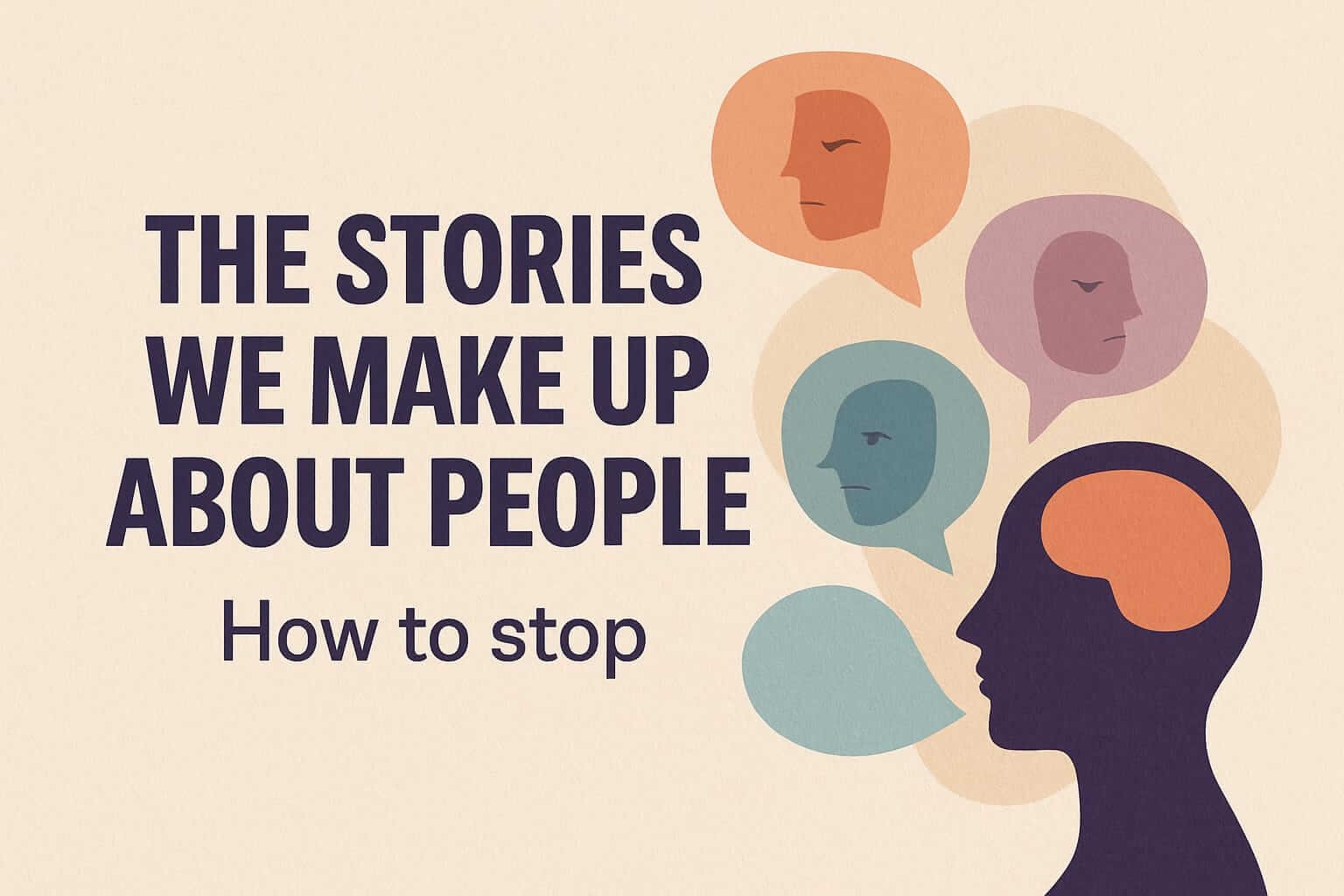Have you ever caught yourself making up a whole story about someone you just met—or even about someone you only briefly observed from afar? Maybe it was a stranger in line at the grocery store, a coworker who seemed “cold” in a meeting, or even a friend who didn’t reply to your text right away. Before you realize it, your mind fills in the blanks and creates a narrative that may or may not be true. That’s exactly what this post is about: why we make up stories about people and how to stop doing it so we can see others—and ourselves—more clearly.
The truth is, we humans are natural storytellers. Our brains are wired to connect dots, create meaning, and make assumptions quickly. It’s a survival mechanism—back in the day, if you saw someone with a weapon walking toward you, you didn’t have time to carefully analyze the situation; you assumed danger and acted. Fast forward to today, and that same mental shortcut is still working—but now it’s writing scripts about people’s personalities, motives, and lives, often with little evidence.
And here’s the catch: those stories are very often wrong.
Why We Fill in the Gaps: How the Brain Makes Assumptions
We don’t always notice it, but our minds hate uncertainty. If there’s a gap in what we know about someone, our brain fills it with its best guess. (This mental habit often overlaps with Overthinking: Why We Do It and How to Stop where we replay scenarios and invent explanations that usually make us feel worse, not better.) Sometimes those guesses are neutral, but more often than not, they lean toward either positive or negative extremes depending on our own mood, experiences, and insecurities.
For example:
- If someone doesn’t smile at you when you walk into the room, your brain might instantly jump to: “They don’t like me.”
- If a coworker keeps to themselves, you might think: “They’re arrogant.”
- If a neighbor always looks stressed, you might assume: “They must have a terrible marriage.”
In reality? The person who didn’t smile might just be shy, or lost in thought. The “arrogant” coworker might be socially anxious. The stressed neighbor could simply be juggling too many responsibilities.
We rarely pause long enough to question the assumptions we’ve made. Instead, the story solidifies in our minds and starts shaping how we treat that person.

The Danger of Our Assumption
The problem isn’t just that our mental stories are wrong—it’s that they influence our behavior.
If a friend cancels plans at the last minute, you might instantly think, “They don’t value me or I am not impor.” Hurt by that story, you pull back or stop reaching out. But what if they were simply exhausted, overwhelmed, or dealing with something personal they didn’t feel ready to share?
Our assumptions can cause:
- Misunderstandings in relationships
- Unnecessary conflicts at work
- Missed opportunities for connection
- Negative self-talk (yes, we even make false stories about ourselves!)
It becomes a self-fulfilling prophecy. If you treat someone based on a false assumption, they may respond in a way that reinforces your original story. And then you feel justified—when in reality, the whole chain of events was built on fiction.
Social Media Makes It Worse
Let’s be honest: social media fuels this tendency big time. We scroll past someone’s vacation photos and assume they have endless money. We see a couple’s smiling selfies and assume their relationship is perfect. Watch a polished professional post online and assume they never doubt themselves.
But what we’re seeing is a highlight reel. It’s carefully curated content, not the full story. Nobody posts the argument they had before that dinner, or the bills piling up in their inbox, or the nights they stay awake worrying.
And yet, our brains fill in the blanks: “They’re so lucky. Their life is better than mine.”
We forget that behind every filtered photo is a human being with struggles, insecurities, and imperfections—just like us.
How to Catch Yourself in the Act
So, how do we stop our brains from writing these false scripts? Well, the first step is awareness. Here are a few practical ways to catch yourself:
- Notice when you’re filling in the blanks.
The next time you find yourself thinking, “She must be upset with me” or “He’s probably judging me,” pause and ask: “Do I actually know this, or am I assuming?” - Consider alternative explanations.
If someone is quiet, instead of defaulting to “They don’t like me,” try: “Maybe they’re tired. Maybe they’re shy. Maybe they had a rough day.” - Ask, don’t assume.
This one is simple but powerful. Instead of creating a story, just ask the person. You’d be surprised how often a direct, kind question clears up a misunderstanding. - Remember your own experiences.
Think about the times people misread you. Maybe someone thought you were rude when you were just stressed. Use that as a reminder that others have invisible battles too.
The Truth About People
At the end of the day, people are rarely as one-dimensional as the stories we tell ourselves about them. That “cold” coworker might be the most loyal friend once you get to know them. That neighbor who always seems grumpy might be dealing with health issues you can’t see. That friend who didn’t reply might simply be overwhelmed.
When we let go of assumptions and stay curious instead, we create space for the real truth to show up. And often, the truth is a lot kinder, more complicated, and more human than the story we imagined.
Assume Grace
Here’s a little mental shift that helps: Instead of assuming stories about people, try assuming grace.
Assume people are doing their best.
Think they have reasons you can’t see.
Assume their story is bigger than the snapshot you’re witnessing.
Because isn’t that what we hope others do for us?
We all have moments where we seem distant, distracted, or off. If someone judged us only on that moment, they’d miss the full picture of who we are. By giving others the benefit of the doubt, we build deeper, more authentic connections—and maybe even rewrite some of the negative scripts running in our own heads.

Final Thought
So, the next time your brain starts filling in the blanks about someone else, pause. Ask yourself: “Is this the truth—or just a story I’m assuming?”
Chances are, it’s the latter. And if you leave space for curiosity instead of judgment, you’ll not only understand others better, but you’ll also free yourself from a lot of unnecessary stress and misunderstanding.
After all, life’s complicated enough without us inventing extra stories that aren’t even true.
(Related Read: When we take things personally, it’s often because of a story we’ve told ourselves about someone’s behavior. Learning How to Stop Taking Things Personally: 6 Mindset Shifts That Help can help you pause before reacting and see the situation more clearly.)
Subscribe and Never Miss a Motivational Boost !!

